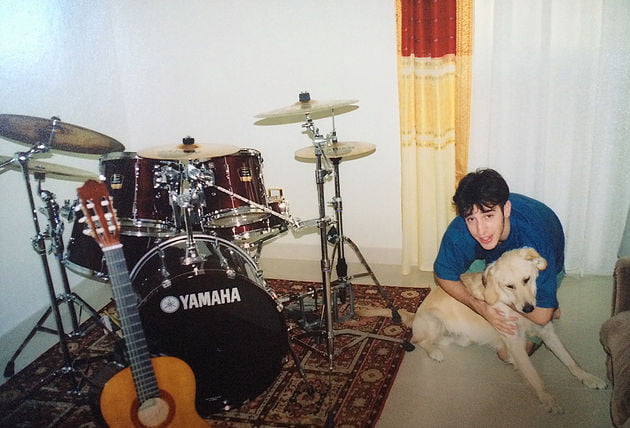
10 Tips For The Self-Employed Drummer
I’ve been a musician pretty much all my life, a semi-professional one for many years, having gone full-time a few years ago. The music industry is a tricky one to navigate as a self-employed musician, as there’s a lot uncertainty. However, it can be very rewarding, and that’s the big pay-off!
Having worked in marketing and advertising before going full time as a musician, I wanted to offer the lessons I’ve learned so far as my top 10 tips for the self-employed drummer / musician. This background and experience, I believe, have given me a different approach to business which is teaching drum lessons, and recording drums remotely for artists all over the world.
#1. A healthy routine, and discipline
Maintaining a healthy routine might mean different things to different people. To me, this is about going to bed at a reasonable hour, and getting up and being productive by 9.30am, even if the hours working in the music industry might be irregular. Be disciplined and work hard yet don’t neglect taking a break, and the importance of chilling out and rest.
Similarly, as your passion is now your livelihood, be aware that it’s easy to get caught up in the work. So do your best to spend as much quality time with your loved ones – they’re your support network and are just as important as your work.

Be disciplined, work hard and the results you want will come
#2. Stay active
Join a gym, or do yoga; it’s an investment and it’s invaluable. Exercise 3 – 5 times a week. You will look better, will feel better, and will even play better. Being physically fit also means being mentally fit; and will have a positive effect on every aspect of your life.

Running is a great way to keep active and healthy on a budget
#3. Don’t be a diva
Be polite, friendly and courteous, make sure you’re always on time and well-prepared. Having a positive attitude and helpful disposition goes a long way! Treat others how you want to be treated. Having a bad attitude is probably the worse thing you can have as a musician, and the music industry is small, so word gets around quickly!
#4. Don’t overplay
Leave your ego behind, and play to serve the song. Being a good musician is not about how many notes you can play per second. Listen to the music and to what others are playing; music is teamwork.
#5. Trust in the universe
Did you ever read a book called The Alchemist by Paolo Coelho? Do yourself the favour and do so if you haven’t. One of the take away messages from the book is that when you follow your heart, the universe conspires to help you. And whilst quitting my job wasn’t inspired by the book, I have personally experienced that things have a way of working themselves out. Keep your head down and work.
#6. Network
Go to gigs or musical / music industry events (i.e. the UK Drum Show, or drum clinics) and meet musicians. Make friends with your local music shop, jam with as many people as possible. This will help not only get your name out there, but you will meet people from the industry who could be helpful. For instance, the drums industry is very small, and as a result, is not only a nice community but also a supportive and collaborative one.

The UK Drum Show is a brilliant networking event.
#7. Have goals, but don’t compare yourself to others
As a player, it’s important to have goals yet you have to remember that you’re not better or worse than the next guy. They’re farther ahead than you because they’ve been playing for longer, or spending more time on stuff.
#8. Listen to lots of different music
Not just that, but learn about the instrumentalists who play on these tracks and the nuances to their playing. You never know when someone might ask of you to play like such and such person in such and such record. Keep in mind that most of the time it’s not about what you play, but how you play it. Listening to varied music will make you a more well-rounded musician.
#9. Don’t stop learning
Take lessons, watch videos, buy books, take courses… Whatever it is, don’t stop learning. Learning keeps you young, but also relevant so you’re more likely to be in demand.
#10. Get the most out of your instrument as a money-generating skill
What does this mean? For instance, I’m a drummer, yet I don’t just play to earn my keep. I teach privately, I write for magazines, I play in cover bands as well as original bands, I do teching work in studios, I created and launched my own product, etc. Think of different ways in which you can apply your instrument to make a living from it.
Bonus tip
#11. Be confident
If you don’t believe in yourself, then who will? This is something I always struggle with, and need to remind myself constantly about. To that effect, you can only do your best under the circumstances you’re under. So, go for broke and give it your best shot.
I hope you’ve found this article helpful. If you’re after drum lessons with a twist of business-savvy, get in touch! Similarly, if you’re an artist after drum tracks for your songs, check out my remote sessions page and let me know how I can help.

